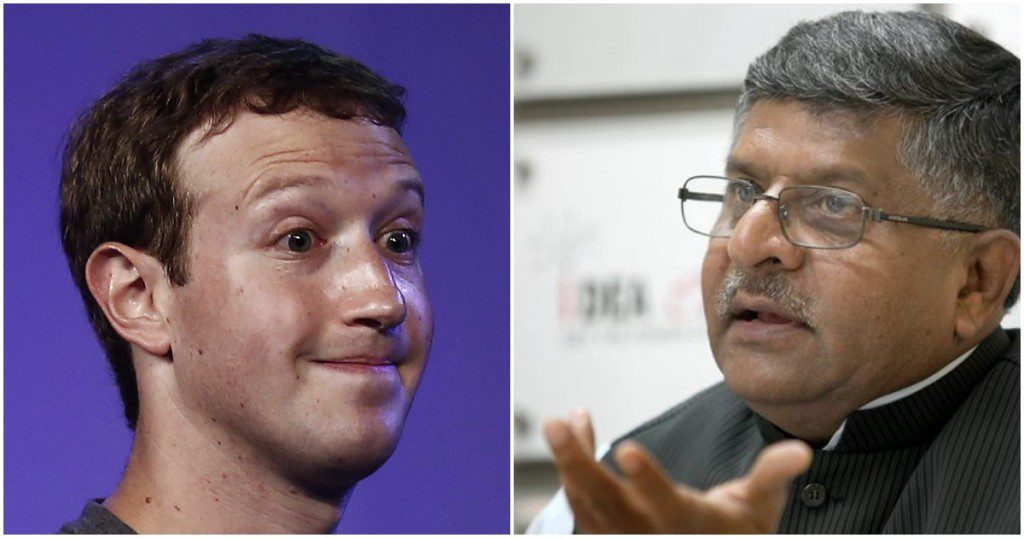India might be WhatsApp’s biggest market, but that doesn’t seem to mean that it’s in any mood to listen to its elected government.
WhatsApp has turned down the Indian government’s request to help it determine the origin of malicious messages shared through its platform. “Building traceability would undermine end-to-end encryption and the private nature of WhatsApp, creating the potential for serious misuse. WhatsApp will not weaken the privacy protections we provide,” a WhatsApp spokesperson said. The government had earlier requested that WhatsApp enable features through which the origin of specific messages be able to be traced after a series of rumours had led to over a dozen people being lynched to death by misguided mobs.

WhatsApp, though, has agreed to the other demands that the Indian government had made of it — the Indian government had said that WhatsApp set up a registered entity in India if it wished to continue providing payments services in the country, and also appoint a grievance officer. Thus far, users transacting through WhatsApp’s UPI interface had no official WhatsApp entity in India to turn to in case of a dispute, or if their payments failed.
But WhatsApp is still defying the government over what was perhaps the most crucial requirement of all — the traceability of messages being sent through the platform. WhatsApp CEO Chris Daniels had visited India this week, and had met IT Minister Ravi Shankar Prasad. Prasad had been clear that the government wanted WhatsApp to help identify the origin of fake news messages. “We asked him (WhatsApp CEO Chris Daniels) to have a detailed mechanism to trace the origin of sinister messages. It does not take rocket science to trace a message that’s being shared in the hundreds and thousands and lakhs,” Prasad had said after meeting the WhatsApp CEO.
But WhatsApp appears to have flatly denied this request, with a spokeperson saying that people rely on WhatsApp for all kinds of “sensitive conversations”, including with their doctors, banks and families, and thus it wouldn’t be possible for it to make the messages known to any third party.
WhatsApp, weaponized
While privacy is an admirable aim in itself, it’s also hard to ignore what’s happening on the ground in India. More than two dozen people in India have been killed after fake WhatsApp messages, of unknown provenance, had accused them of being child kidnappers. The messages had circulated quickly among small communities, who’d then ganged and violently dispensed a gruesome version of mob justice.
Even more alarming is the ease with someone with nefarious intent can cause fake news to quickly spread through WhatsApp, and remain completely untraceable. It would be possible for someone sitting in their bedroom to quickly morph some pictures, send them to a few WhatsApp friends, and if their content is shocking enough, see them quickly spread to millions of users. And with WhatsApp unwilling to let the Indian government know where these messages originated, these bad actors, both external and internal, can keep creating and spreading these messages with impunity.
Absolute privacy has few historical precedents
It’s probably that the first time in history that world governments are unable to track the origins of messages shared among their own citizens. Most channels of communication in the early part of the last century were controlled by governments — telegram messages had to pass through government controlled centers, and government authorities in the first and second world wars routinely opened postal messages before delivering them. There are also procedures to spy on relatively more modern forms of communication — phone calls are routinely tracked by governments through wiretaps and the like. These safeguards allow governments to ensure that illegal activities aren’t planned and plotted through these platforms.
But governments are now confronted with end-to-end encryption that WhatsApp offers, which makes it impossible for anyone, even WhatsApp, to read the content of messages, and hence trace them to their origin. To make matters worse, the encryption is controlled by a company that doesn’t even have a registered entity in India. It’s understandable why the Indian government is uneasy with the situation, given how public pressure is mounting on preventing these lynchings.
Is WhatsApp becoming too powerful?
The Indian public should be wary of how much power WhatsApp — and its parent company, Facebook — now yield over the Indian people. With WhatsApp flatly refusing to co-operate with the Indian government, WhatsApp appears to consider itself to be a quasi-governmental entity where the rules of the Republic of India need not apply. If WhatsApp doesn’t let the Indian government know where messages originate, everything from the planning of murders, to the stoking communal tensions, to the plotting against the state can happen through its platform, with WhatsApp not being obliged to share any of this information with the authorities.
And while the Indian public prides itself on a healthy distrust of its own government, trusting WhatsApp and Facebook with their data might be a much worse alternative. Just this year, it was revealed that Facebook had let the data of nearly 300 million people be stolen through its platform, and kept the information under wraps until it was revealed by a whistleblower. Also, Facebook isn’t obliged to follow Indian law — it is registered in the US, and is only answerable to its shareholders. And even Facebook’s shareholders don’t have a real say in how Facebook is run — Facebook CEO Mark Zuckerberg has cleverly allotted himself preference shares, which means that he alone controls a majority of voting rights in Facebook, and can alone determine how the company is run.
If WhatsApp continues to refuse to help trace fake messages on its platform, it’ll boil down to this: a single billionaire living in Menlo Park will have a greater say in how the data of billions of Indians is used, than their own democratically elected representatives. And no matter how distrustful they are of their own government, that might be a bitter pill for many Indians to digest.